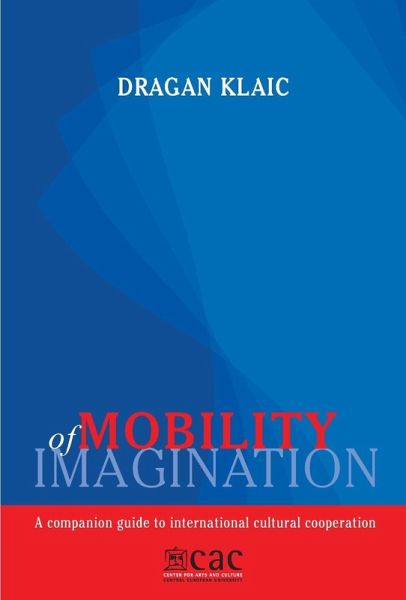
Mobility of Imagination (eBook, PDF)
Versandkostenfrei!
Sofort per Download lieferbar
14,95 €
inkl. MwSt.
Weitere Ausgaben:

PAYBACK Punkte
7 °P sammeln!
This concise guidebook explains the purpose and expected benefits of international cultural cooperation, its risks and strategic issues, models and success factors. International cultural cooperation is analyzed here as a trajectory of professional development of individual and institutional operators and as a strategy to build an integrated, inclusive cultural space that will enhance the notion of European citizenship. Examples are offered from all parts of Europe and all disciplines. Cultural cooperation has been traditionally conceived as a matter of national governments and national cultur...
This concise guidebook explains the purpose and expected benefits of international cultural cooperation, its risks and strategic issues, models and success factors. International cultural cooperation is analyzed here as a trajectory of professional development of individual and institutional operators and as a strategy to build an integrated, inclusive cultural space that will enhance the notion of European citizenship. Examples are offered from all parts of Europe and all disciplines. Cultural cooperation has been traditionally conceived as a matter of national governments and national cultural and foreign policy, not in a broad supranational perspective and not from the point of view of cultural operators themselves. Students previously had to rely on occasional articles and some governmental and academic studies of a rather narrow focus and national perspective.
Dieser Download kann aus rechtlichen Gründen nur mit Rechnungsadresse in A, B, BG, CY, CZ, D, DK, EW, E, FIN, F, GR, HR, H, IRL, I, LT, L, LR, M, NL, PL, P, R, S, SLO, SK ausgeliefert werden.













